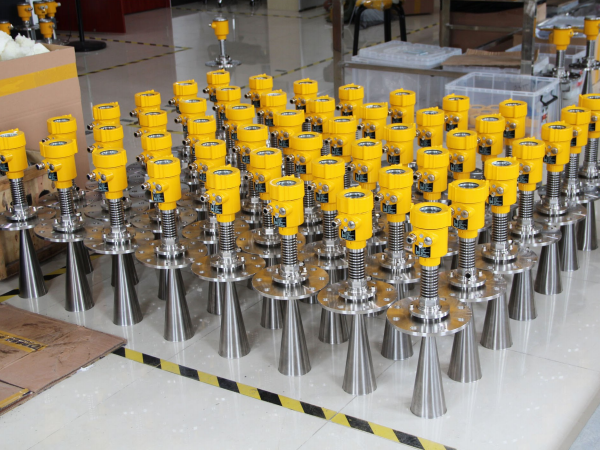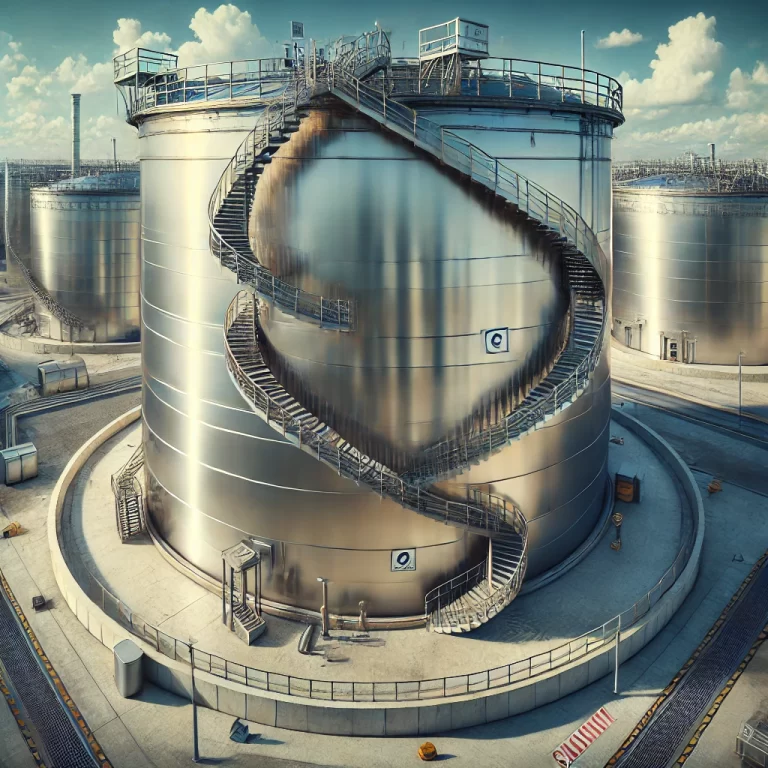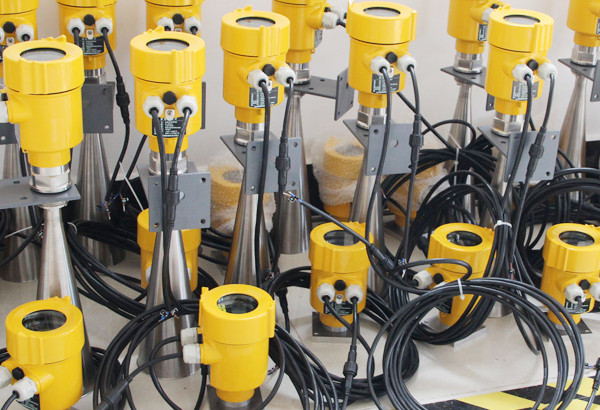In modern industrial production, large storage tanks play a crucial role. They are used not only to store various liquids and bulk solid materials but are also widely applied in industries such as petrochemicals, food processing, and water treatment. Accurate measurement of the material level in these tanks is one of the key factors to ensure the safe and efficient operation of production processes. This article explores the practical applications of radar level meters in measuring large storage tanks.

Advantages of Radar Level Meters in Large Storage Tanks
Radar level meters have shown significant advantages in the measurement of material levels in large storage tanks. Below are several typical application scenarios:
Petrochemical Industry: In refineries and chemical plants, it is essential to monitor the storage tanks containing crude oil, refined oil, and chemicals, which are often flammable and explosive. Radar level meters not only meet explosion-proof requirements but also maintain stable performance under harsh weather conditions, ensuring safe production.
Grain Storage: In large silos storing wheat, corn, soybeans, and other grains, real-time inventory management is vital for scheduling and management. Radar level meters can effectively handle dust interference and provide accurate measurement results.
Water Treatment Facilities: In wastewater treatment plants or reservoirs, monitoring water level changes is essential for ensuring water quality and managing water resources efficiently. Radar level meters can continuously monitor water levels in open bodies of water or closed pipelines, providing data to support decision-making.
Food and Beverage Processing: In industries such as brewing and dairy production, liquid level control in raw material and finished product tanks directly impacts product quality. Radar level meters, with their hygienic design and high reliability, have become the preferred solution.

Case Study: Implementation in a Petrochemical Enterprise
A large petrochemical enterprise, seeking to improve the safety and management efficiency of its oil storage tanks, decided to upgrade all its tanks with radar level meters. The project involved dozens of vertical and horizontal tanks of various specifications, storing media such as crude oil, gasoline, and diesel. Through careful planning and technical selection, high-frequency radar level meters were chosen to suit various working conditions, along with accompanying data processing software.
The results of the implementation were significant:
- 24/7 Online Monitoring: All storage tanks achieved around-the-clock online monitoring, with data collection occurring once per second.
- Accurate Readings: The system could automatically identify and eliminate false echoes, ensuring accurate readings.
- Automated Alerts: When the material level reached a preset warning level, the system automatically triggered an alert, notifying operators to take timely action.
- Enhanced Efficiency: Long-term operation revealed no shutdown incidents due to equipment failure, significantly improving production efficiency.

Conclusion
As an advanced level measurement technology, radar level meters have proven their value in various industries. With continuous innovation and improvement in technology, more and more enterprises are expected to adopt this efficient and reliable solution to enhance their competitiveness.
